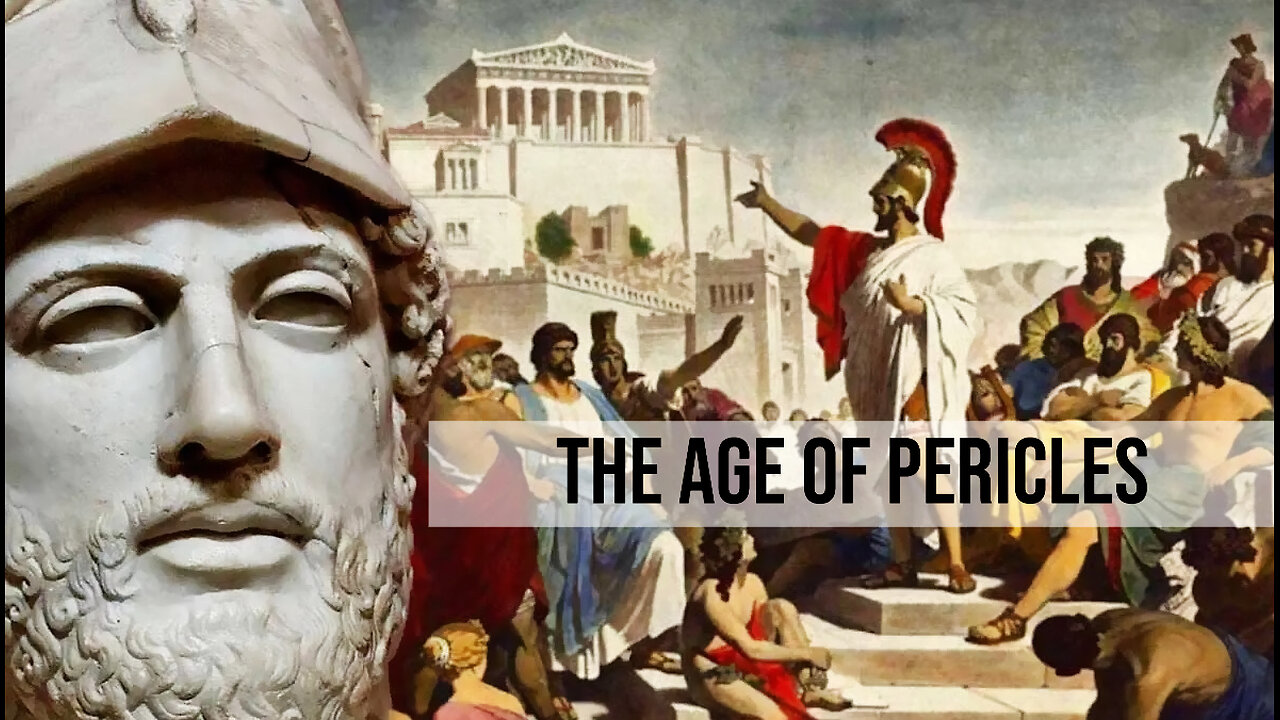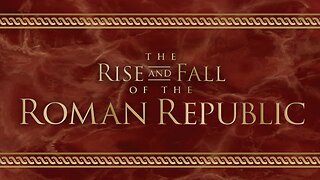Premium Only Content

The Age of Pericles | Athens after Pericles (Lecture 21)
Lecture 21: No sooner had the inevitable war between Athens and Sparta broken out than Athens was rocked by two disasters: The city was hit by the plague, and Pericles died. The consequences were catastrophic. With refugees flooding into the city and the dead literally piling up in the streets, Athens was demoralized and plunged into chaos. Perhaps worse, with the death of Pericles, the Athenians lost the one commander best equipped to lead them through the long war of attrition now facing them. In his place, the Athenians were now led by men eager for popularity and quick to seize any opportunity, no matter how reckless. The most notable of these was Cleon, but it was after Cleon’s death that the Athenians undertook the most daring campaign of the war: the Sicilian expedition of 415–413. The expedition ended in disaster for the Athenians and ushered in the final phase of the war, during which the Athenians were faced with the logical strategic response to their defensive capabilities: The Spartans built a navy large enough to threaten the Athenian supply of grain from the Black Sea. Although defeat did not come quickly, because the Athenians were superior seamen and defeated larger Spartan navies, nevertheless, by 404, the Spartans were able to choke off Athens’s supply line and force the city to capitulate. Was defeat inevitable? Could Athens ever have won? We face the jarring possibility that Pericles, for all of his brilliance as a leader, may have doomed the Athenians to an unwinnable war.
Suggested Reading:
Meier, Christian. Athens: A Portrait of the City in Its Golden Age. New York: Henry Holt, 1998.
Munn, M. The School of History: Athens in the Age of Socrates. Berkeley and Los Angeles: University of California Press, 2000.
Lecture 22: https://rumble.com/v5f0yi4-the-age-of-pericles-socrates-and-the-sophists-lecture-22.html
-
 33:35
33:35
The Great Courses
28 days agoThe Rise And Fall Of The Roman Republic | Julius Caesar and the Collapse of the Roman Republic (Lecture 11)
286 -
 LIVE
LIVE
Wendy Bell Radio
6 hours agoCHECKMATE
12,158 watching -
 DVR
DVR
VSiNLive
1 hour agoA Numbers Game with Gill Alexander | Hour 1
1.77K -
 LIVE
LIVE
Matt Kohrs
10 hours agoPumping To New Highs, Memecoin Mania & The Week Ahead || The MK Show
1,199 watching -
 42:05
42:05
BonginoReport
4 hours agoPothole Pete Blames Plane Crash in Canada on Trump (Ep.142) - 02/18/2025
64.2K147 -
 1:13:40
1:13:40
Graham Allen
3 hours agoDOGE Is Going After The IRS!! Mass Firing Soon!! + ANOTHER Plane Crash! We Are Not Safe…
35.5K15 -
 56:28
56:28
Randi Hipper
1 hour agoArgentina's Meme Coin Disaster: Inside the LIBRA Crash
2.93K1 -
 DVR
DVR
Chicks On The Right
5 hours agoCrazy plane crash, crazy lib protests, and Deborah Birx can suck it
38.7K5 -

2 MIKES LIVE
2 hours agoTHE MIKE SCHWARTZ SHOW with DR. MICHAEL J SCHWARTZ 02-18-2025
4.19K3 -
 1:10:14
1:10:14
Game On!
17 hours ago $3.60 earnedPresident Trump's plan to Make the Super Bowl Great Again!
30.2K1